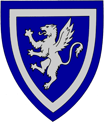The SCA is a very complex game based on history. We create personas that might have lived in the Middle Ages, giving them names and backgrounds. Choosing a name for your persona is complex, and deeply personal.
The key to choosing a name is knowing the rough time period and culture you like most. The things you should consider are often related to what brought you into the SCA. Do you love to shoot arrows? Fight? Fence? Dance? Cook? And archer might have an English persona. A fencer would probably lean towards a late period Italian or French persona. A fighter might prefer a Viking or Roman persona. When in doubt, earlier period is simpler in terms of clothing, armor, and accouterments.
Once you have a culture and time period, ask a Herald for name resources. There are many SCA websites like the Viking Answer Lady with lists of names and their meanings.
People often tell me, “My name is registered; it’s on my blue card.” (The ‘blue card’ is an SCA Membership Card printed on blue card stock.) Please understand that the College of Heralds has absolutely nothing to do with SCA Memberships. Heralds neither ask nor care if you are an SCA Member; we register things to your legal name. This is why registering your SCA name with the Heralds is so important: our database uses your SCA name exclusively, so your legal name is not floating around on the internet. The College of Heralds keeps a separate, tightly controlled database that cross-references SCA names to legal names, in case there is ever a question of who registered what.
I talk more about SCA Membership Cards and what you can and cannot register as a name in my post about Common Heraldic Misconceptions.
When you look for a name, I encourage you not to start at the front of the alphabet. There are more names beginning with “A” than any other letter in the Society, and it causes a lot of confusion. Your name should be your own. Flip through resources. Pick a few letters. Look at “I” and “K” and “T” names. Check out the end of the alphabet.
A short, unusual name is critical if you are a Fencer or a Heavy List Fighter! If your name is yelled in combat, you need to hear it. Choosing a short name with one or two syllables is best. A longer name with a short nickname is also good. Choosing a common mundane name like “Eric” or “Michael” will cause confusion on the field of battle, and can result in you losing battles or tournaments.
When you have a few names you might consider, show them to your friends. Ask how they would say those names. Think about ways that name could be mispronounced. If you have a name with unusual characters, coming up with a mnemonic for pronunciation is helpful. My name, Þórý, is often mispronounced “Poury,” so my mnemonic is to say my name is like “Story!” with more Thor.
If you don’t want a period name, the Legal Name Allowance may be helpful. The Heralds will register one component of your legal name, be it you first, last, or middle name. The reason only one component of your name can be registered is because you are not your persona.
The Legal Name Allowance can sometimes help you in other ways. A friend registered the name ‘Angelanne de Mercy’ because she was the angel of mercy who always had bandaids, sunblock, and water for others. Her name was perfect…until the night of her first camping event, when her long, trailing sleeve caught on fire. Everyone yelled “Angelanne, you’re on FIRE!” and she jumped up to see who had set themselves on fire. A young man she had been flirting with jumped over the firepit and tackled her to smother the flames, and that was when she realized the person on fire was HER. She has stuck to her mundane name ever since.
Once you have a first name, you will need to choose a last name and/or a place of origin. Both parts of your name need to be documentable within 500 years of each other. If you would like to have a cross-culture name, both parts of your name must be documentable within 300 years of each other, and from cultures that interacted with each other. You could have an English/French name, but a French/Japanese one is not registerable.
Locations are interesting because you can be from a place in history, or from your local SCA group. If you want to be from a historical place, you must provide period documentation of that place’s name, because spellings can change over time. (Ask a Herald for help. There are Heralds who love researching old maps and period documentation.) If you want to register a locative of an SCA group, that group must have registered its name with the College of Heralds.
If you don’t want to go through the process of choosing a name and surname, you can always register “[Your Legal First Name] of [your local group].” This is sometimes called a “holding name” and can be important if you submit your name and device together, but for some reason your name doesn’t pass the registration process.
Once you have assembled your name and its documentation, you will need to submit the paperwork to your kingdom’s submissions herald. This requires mailing the paperwork and a processing fee with your submission. Fees vary by Kingdom, and they keep the heraldic servers and databases online.

2 thoughts on “What’s in a (Heraldic) Name?”